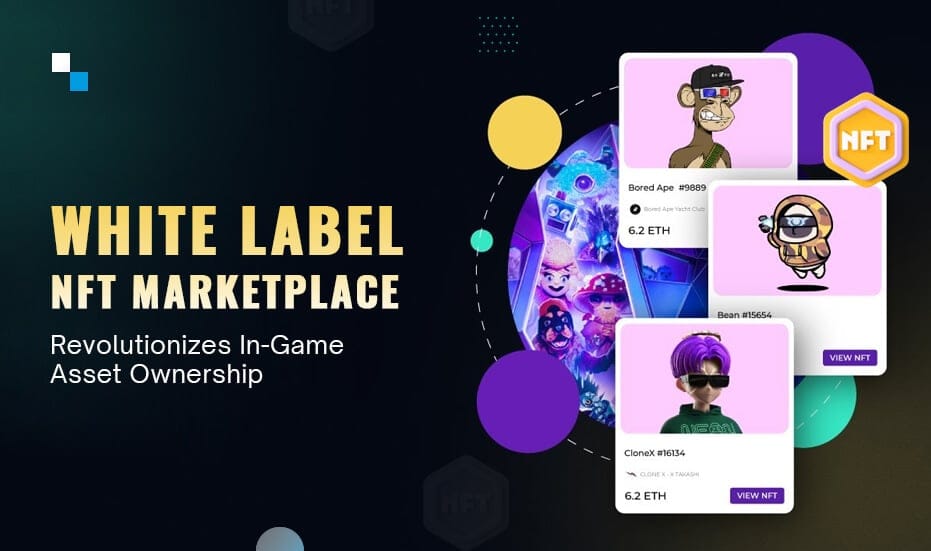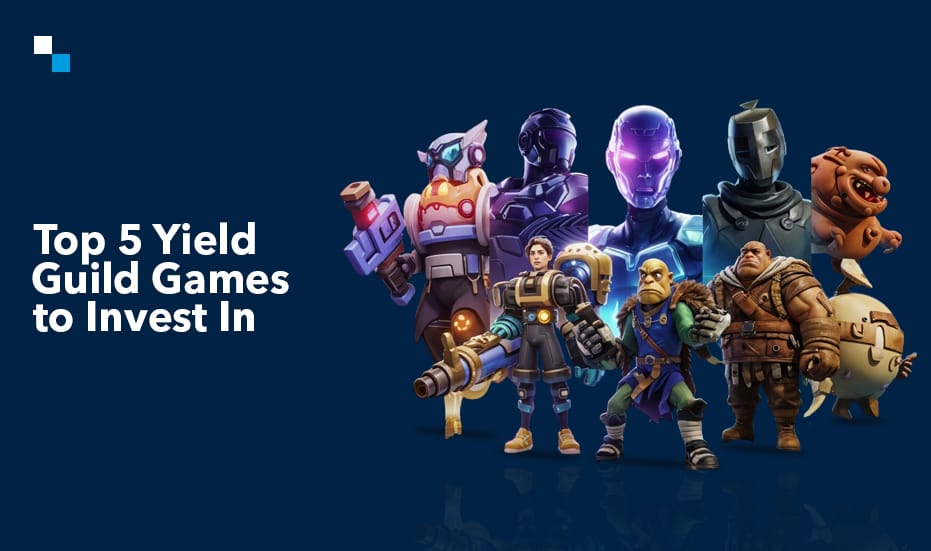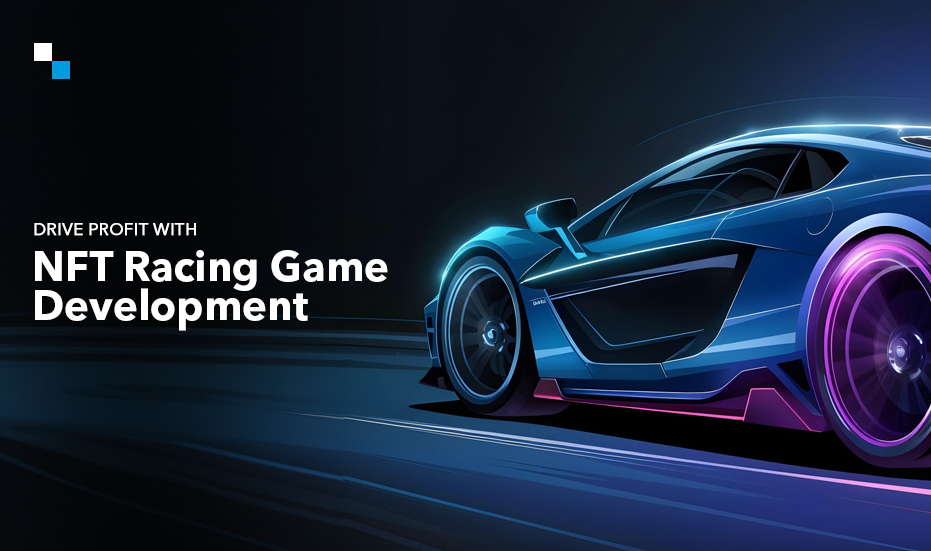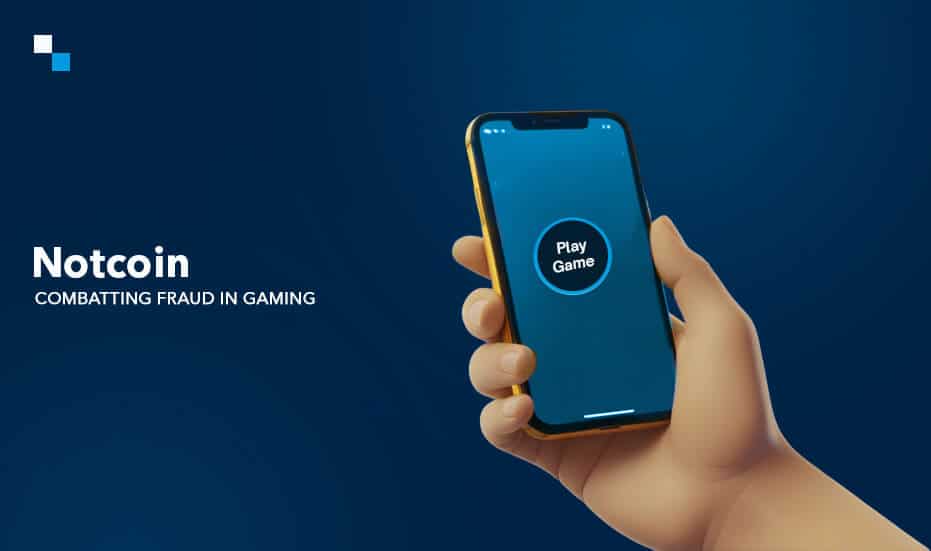
Shimmering Craze: Trending Gold-Backed Cryptocurrency in 2023
July 19, 2023
Top 10 Digital Banking Trends: How to Ensure You Are Future-Ready
July 20, 2023The gaming industry has always been at the forefront of technological innovation. In recent years, the integration of blockchain technology and non-fungible tokens (NFTs) has taken gaming to new heights. One significant development in this space is the emergence of the white label NFT marketplace. These platforms enable game developers to create, buy, sell, and trade in-game assets as NFTs, revolutionizing the gaming experience.
White label NFT marketplace development has indeed been making a significant impact on the gaming industry. NFTs, or non-fungible tokens, are unique digital assets that can represent ownership or proof of authenticity for various digital or physical items.

Additionally, NFT marketplace revenue is estimated to grow at an 18.55% yearly rate (CAGR 2023-2027), resulting in a total of US$3,162.00m by 2027. Who won’t like to be a part of this amazing money-earning stream?
In this blog, we’ll explore the untapped potential of white label NFT marketplace in the gaming space.
True Potential of White Label NFT Marketplace in the Gaming Industry
Let’s explore how choosing the right white-label NFT marketplace development company can offer new money-earning opportunities for players, developers, and investors alike:
1. The Power of Ownership and Interoperability
White label NFT marketplaces have introduced a paradigm shift in gaming by enabling true ownership of in-game assets. Traditionally, players would invest time and money into acquiring virtual items without any real ownership. With NFTs, players can now possess unique and verifiable digital assets that can be bought, sold, and transferred. This ownership dynamic enhances player engagement, as gamers can truly invest in their virtual possessions.
Moreover, white label NFT marketplaces bring interoperability to gaming ecosystems. Players can utilize their acquired NFTs across multiple games and platforms, effectively breaking down the barriers of isolated game economies. This interoperability fosters a vibrant and interconnected gaming community, fueling innovation and creativity.
2. Incentivizing Players and Developers
White-label NFT marketplaces introduce a new level of incentives for players and developers. Gamers can earn real-world value by selling or trading their valuable in-game assets through these marketplaces. This creates a novel avenue for players to monetize their skills and investments, further driving player engagement and dedication.For a game developer, a white label NFT marketplace offers a new revenue stream and business model. By integrating NFTs, game creators can receive a portion of transactions occurring on the marketplace, incentivizing them to design compelling in-game items and experiences. This revenue-sharing model aligns the interests of developers and players, fostering a mutually beneficial ecosystem.
3. Enhanced Player-Driven Economies
White label NFT marketplace development empowers players to shape and participate in player-driven economies within gaming ecosystems. These marketplaces facilitate the emergence of vibrant digital marketplaces where players can freely buy, sell, and trade their NFT assets. The value of these assets is determined by supply and demand dynamics, creating a dynamic economy driven by player interactions.Player-driven economies promote a sense of community and collaboration, as players engage in economic activities and build virtual marketplaces. This phenomenon has given rise to entrepreneurs who specialize in trading and investing in virtual assets, creating a thriving ecosystem within the gaming industry.

4. Tokenization of in-game assets
NFTs allow developers to tokenize in-game assets, such as virtual items, characters, skins, weapons, and more. By creating unique and indivisible tokens for these assets, players can have true ownership and control over their virtual possessions. This enhances the gaming experience by enabling players to buy, sell, trade, and monetize their in-game assets in a secure and transparent manner.
White-label marketplaces provide tools and interfaces for game developers to mint new NFTs representing in-game assets. Game developers can define the properties, attributes, and scarcity of these assets and convert them into NFTs on the blockchain. The marketplace also facilitates the management of these NFTs, including tracking ownership, facilitating transfers, and maintaining a secure record of transactions.
White label NFT marketplace development opens up monetization opportunities for game developers. By tokenizing in-game assets and integrating them into a marketplace, developers can earn a percentage of the transaction fees or commissions generated on the platform. This creates a new revenue stream for game developers and incentivizes them to create valuable and sought-after in-game assets.
5. Reduces fraud and ensures authenticity
NFTs are built on blockchain technology, providing an immutable and transparent record of ownership. This eliminates the risk of fraud and ensures the authenticity and scarcity of in-game assets. Players can verify the origin and ownership history of an NFT, which enhances trust and security in the gaming ecosystem.
White Label NFT Marketplace Development Company can help utilize smart contracts, which are self-executing contracts with predefined rules encoded on the blockchain. Smart contracts enable secure and automated transactions, ensuring that both parties fulfill their obligations before the exchange of assets takes place. By leveraging smart contracts, white label marketplaces reduce the risk of fraudulent transactions and provide a level of trust and security for buyers and sellers.
6. Enables Cross-Platform Compatibility
A white-label marketplace can be designed and developed to provide a unified experience across different platforms, such as PC, console, mobile, and even virtual reality (VR). This means that players can access the marketplace and interact with it seamlessly, regardless of the platform they are using. White-label marketplaces enable players to engage with the marketplace from their preferred gaming platform by offering a consistent user interface and features.
With a white label NFT marketplace, players can own and trade NFTs that represent in-game assets, regardless of the platform they are playing on. This means that an NFT obtained on one platform can be used, traded, or sold on another platform seamlessly. For example, a player who acquires a rare skin in a game on their mobile device can later transfer and use that skin in the same game on their PC or console, thanks to the cross-platform compatibility facilitated by the marketplace.
Conclusion
The development of white-label NFT marketplaces has revolutionized the gaming industry, providing players with true ownership of in-game assets and unlocking new avenues for monetization. White Label NFT Marketplace can be built swiftly and provide a new revenue stream for game producers by letting them receive a percentage of each transaction that occurs on their platform. Furthermore, it enhances player engagement and retention by incentivizing players to spend more time in the game in order to collect valuable NFTs and participate in the marketplace.
White label NFT marketplace development service providers are reshaping the game business by providing players with actual ownership, cross-platform compatibility, and revenue potential. Why not choose Antier, a trusted white label NFT marketplace development company to harness the power and expertise of white-label NFT development into your gaming business? Contact today!



